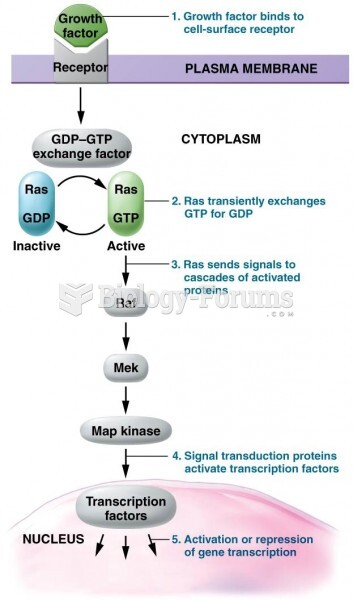|
|
|
Fungal nail infections account for up to 30% of all skin infections. They affect 5% of the general population—mostly people over the age of 70.
Looking at the sun may not only cause headache and distort your vision temporarily, but it can also cause permanent eye damage. Any exposure to sunlight adds to the cumulative effects of ultraviolet (UV) radiation on your eyes. UV exposure has been linked to eye disorders such as macular degeneration, solar retinitis, and corneal dystrophies.
Drying your hands with a paper towel will reduce the bacterial count on your hands by 45–60%.
Before a vaccine is licensed in the USA, the Food and Drug Administration (FDA) reviews it for safety and effectiveness. The CDC then reviews all studies again, as well as the American Academy of Pediatrics and the American Academy of Family Physicians. Every lot of vaccine is tested before administration to the public, and the FDA regularly inspects vaccine manufacturers' facilities.
More than 4.4billion prescriptions were dispensed within the United States in 2016.
 Flower part number is a characteristic difference between monocots and eudicots (a) Flowers and buds
Flower part number is a characteristic difference between monocots and eudicots (a) Flowers and buds
 Gate Control Theory, Gate control, Open gate, Closed gate, Pain, Nerve transmission of pain, Pain ma
Gate Control Theory, Gate control, Open gate, Closed gate, Pain, Nerve transmission of pain, Pain ma
 Relationship between the number of CAG repeats in a gene and the age of onset of Huntington disease.
Relationship between the number of CAG repeats in a gene and the age of onset of Huntington disease.




